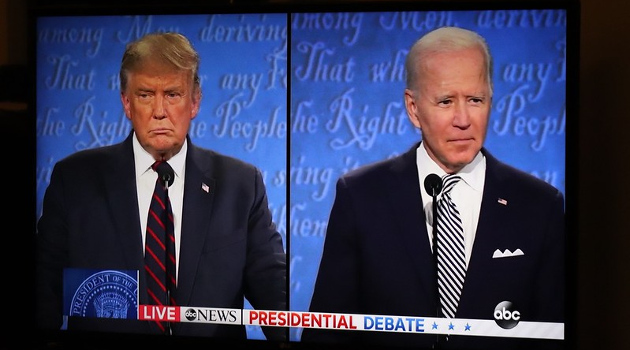As part of my annual “hopes and fears” column, I expressed optimism at the start of 2021 that Joe Biden would steer the country back toward free trade after the economically debilitating protectionist mistakes of the Trump era.
I’ve been bitterly disappointed. On this issue, he’s another Donald Trump.
I’m not the only one to notice. David Lynch of the Washington Post has a story about Biden’s protectionism.
He starts with a very reasonable point about Biden being way to the left of Barack Obama and Bill Clinton on the issue of trade.
But he then errs by stating that this means Biden is placing workers above consumers.
President Biden…continues a remarkable break with decades of trade policy that spanned both Republican and Democratic administrations. …the president is reshaping the U.S. approach to cross-border commerce to focus on the needs of Americans as workers rather than consumers. …The president…surprised some in the business community by retaining Donald Trump’s tariffs on Chinese imports after criticizing them during the 2020 campaign as “erratic” and “self-defeating.” …His policies are winning muted praise from some Trump allies even as they irk moderate Democrats who see expanded trade as the route to prosperity and lower prices. …Biden’s approach rejects the trade liberalization doctrine that held sway for nearly three decades after the Cold War’s end. …For pro-trade Democrats who saw the Trump era as an anomaly, Biden’s rejection of traditional negotiations and embrace of industrial policy has been a disappointment. Former treasury secretary Lawrence Summers, who served alongside Biden in the Obama White House, last month called the president’s thinking “increasingly dangerous”.
When I read the part of the story about Biden’s protectionism supposedly focusing on “the needs of Americans as workers rather than consumers,” I immediately thought of Bastiat’s wise words about the “seen” and the “unseen.”
That’s because protectionism hurts workers as well as consumers.
Yes, a tiny minority or workers (the “seen”) benefit from protectionism.
But a far greater number of workers (the “unseen”) wind up in the unemployment line because of the economic inefficiencies caused by trade taxes.
That’s confirmed by all sorts of scholarly research (not a surprise to those who have examined the horrible effect of Hoover’s protectionism in the 1930s).
And now we have some new evidence.
Erica York of the Tax Foundation shares some research on Trump’s proposed tax increase.
Former President Donald Trump’s proposed 10 percent tariff would raise taxes on American consumers by more than $300 billion a year—a tax increase rivaling the ones proposed by President Biden. …the new tax would harm the U.S. economy… Higher input costs for businesses lead to reduced production, and in turn, lower wages and profits. They can also lead to higher consumer prices… Using the Tax Foundation’s general equilibrium model, we estimate a new 10 percent tariff on all imports would reduce the size of the U.S. economy by 0.7 percent and eliminate 505,000 full-time equivalent jobs. Unfortunately, that would be the tip of the iceberg. ..If the rest of the world responded to the new tariff in kind, it would amount to $200 billion of new taxes for foreign governments. We estimate that would further reduce U.S. GDP by 0.4 percent and eliminate another 322,000 full-time equivalent jobs. Taken together, we find Trump’s proposal of a 10 percent trade tax matched with in-kind retaliation would shrink the U.S. economy by 1.1 percent and threaten more than 825,000 U.S. jobs.
More than 500,000 lost jobs, rising to more than 800,000 lost jobs if other nations retaliate.
At the risk of understatement, that’s not good news for workers.
The article notes that other economists have similar findings.
Indiana University economist Ahmad Lashkaripour estimates a global tariff war would, on average, shrink a country’s GDP…the United States would experience a GDP drop of 1.1 percent
The bottom line is that Trump was bad on trade and Biden is also bad on trade.
We can call them the Tweedledee and Tweedledum of cross-border commerce.
P.S. The David Lynch story in the Post contains another fundamental mistake. He thinks government can “funnel” money into the economy without first taking it out of the economy.
Biden’s three signature legislative achievements — the Inflation Reduction Act, the CHIPS Act and the bipartisan infrastructure bill — are expected to funnel several trillion dollars into the U.S. economy in coming years.
This is embarrassingly naïve, sort of a kindergarten version of Keynesian economics. All government spending is financed by diverting resources from the economy’s productive sector.
———
Image credit: Elvert Barnes | CC BY-SA 2.0.




